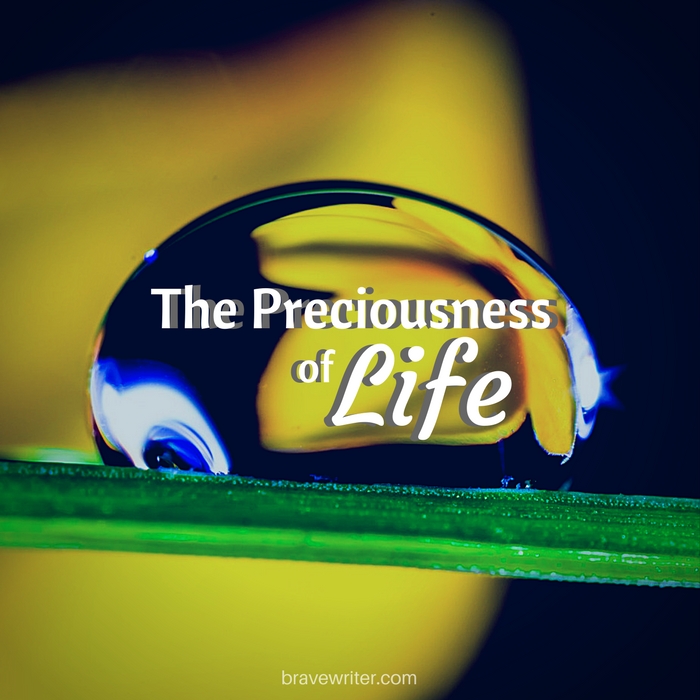The Preciousness of Life

This August we’re reading Station Eleven in our Boomerang Book Club (the book club for teens). Written by a Canadian homeschooler (Emily St. John Mandel), it was a national book award finalist.
The story is about a post-pandemic world where not enough people survive to sustain life as we currently know it—no one to ship our goods across oceans, no one to run the power grid, no one to drill for oil and turn it into petroleum, no more harvesting of crops, no running water, and so on… The modern world grinds to a halt. The remnant population is forced to hunt and scavenge in the ruins of the 21st century.
I read this book last August, in fact. It so moved me, I wept openly on a plane, amazed at the miracle of flight—that I had been born in a time and place where transcontinental travel was taken for granted, that even my tray and cupholder were perfectly designed and formed: a delight to use. A miracle!
All year, I’ve lived with that feeling—that we have lost touch with just how incredible it is to be alive now, in this moment aware of all the moments that came before and able to take full advantage of all that we offer each other now.
It’s taken all ten thousand years and billions of human beings to create every single taken-for-granted item and service we live with daily—to be at a point where travel, telecommunications, and agriculture make life on our planet comfortable, productive, and stupendously amazing!
The overnight news of rising tensions between the US and North Korea (I’ll admit) freaked me out. I’m amped on adrenaline and the old 1970s fear of nuclear holocaust (only so much more aware of what that really means) has returned with a vicious vengeance. I found myself wishing I were already dead—I don’t want to be alive when nuclear holocaust comes. Honestly.
It struck me as prescient really that we are reading this book about a kind of post-apocalyptic world as a community this month.
It’s an illusion to think that tomorrow and tomorrow and tomorrow will be here waiting to be enjoyed or faced.
The luxury of the illusion of time allows us to be cranky, to be careless with our attitudes and words, to assume that an opulence of time allows us to mistreat one another knowing we can make up for it whenever we want to—some other day we can be kind, understanding, gentle, tender. Today, we’ll be moody, irritable, annoyed.
Yet today is a miracle—that you and I are still here, still sipping coffee, listening to music written by someone we’ll never meet, piped to us by machines the size of a pocket in a pair of jeans fueled by energy whose source is every bit as mysterious as a witch doctor’s incantation.
I’m typing my thoughts and they will instantly transmit to every corner of the globe through no effort of mine.
All of this astonishing achievement can be snatched from us in a moment—a careless, angry, ego-laden move by a national leader designed to protect one set of interests against another.
The real danger of our interconnected, startlingly brilliant 21st century world IS our interdependence—the collective need to collaborate rather than compete. Our nationality, our ethnicity, our geography hold us hostage. “Survival of the fittest” no longer works. To make it, we must partner and care about each other’s welfare as we do our own.
It starts at home. Today.
No more going nuclear on our kids, on our spouses.
No more permitting them to go nuclear on us.
It feels like we don’t have time to be cruel. I remember a friend saying years ago when faced with awfulness, to respond in the opposite spirit. It occurred to me tonight that in light of the international tension, we can flip the script at home.
It’s time to take time in hand and hold it gently, with reverence, sharing love with those we love, being kind and considerate. There’s no time to waste. This is it.


















